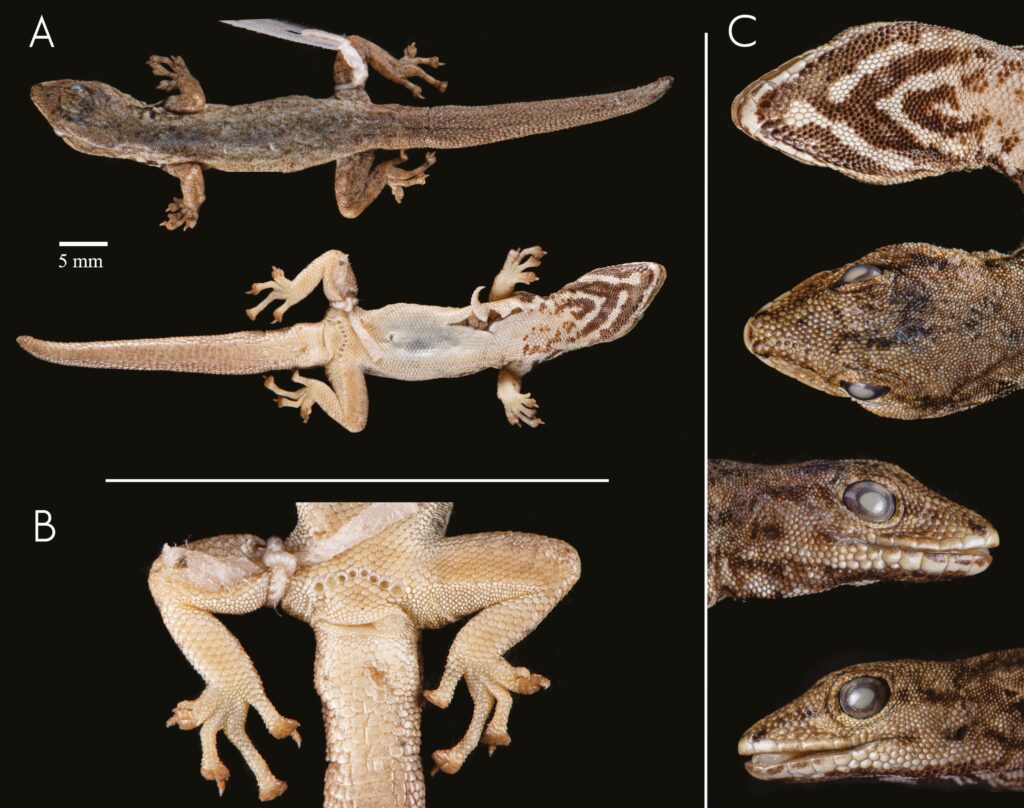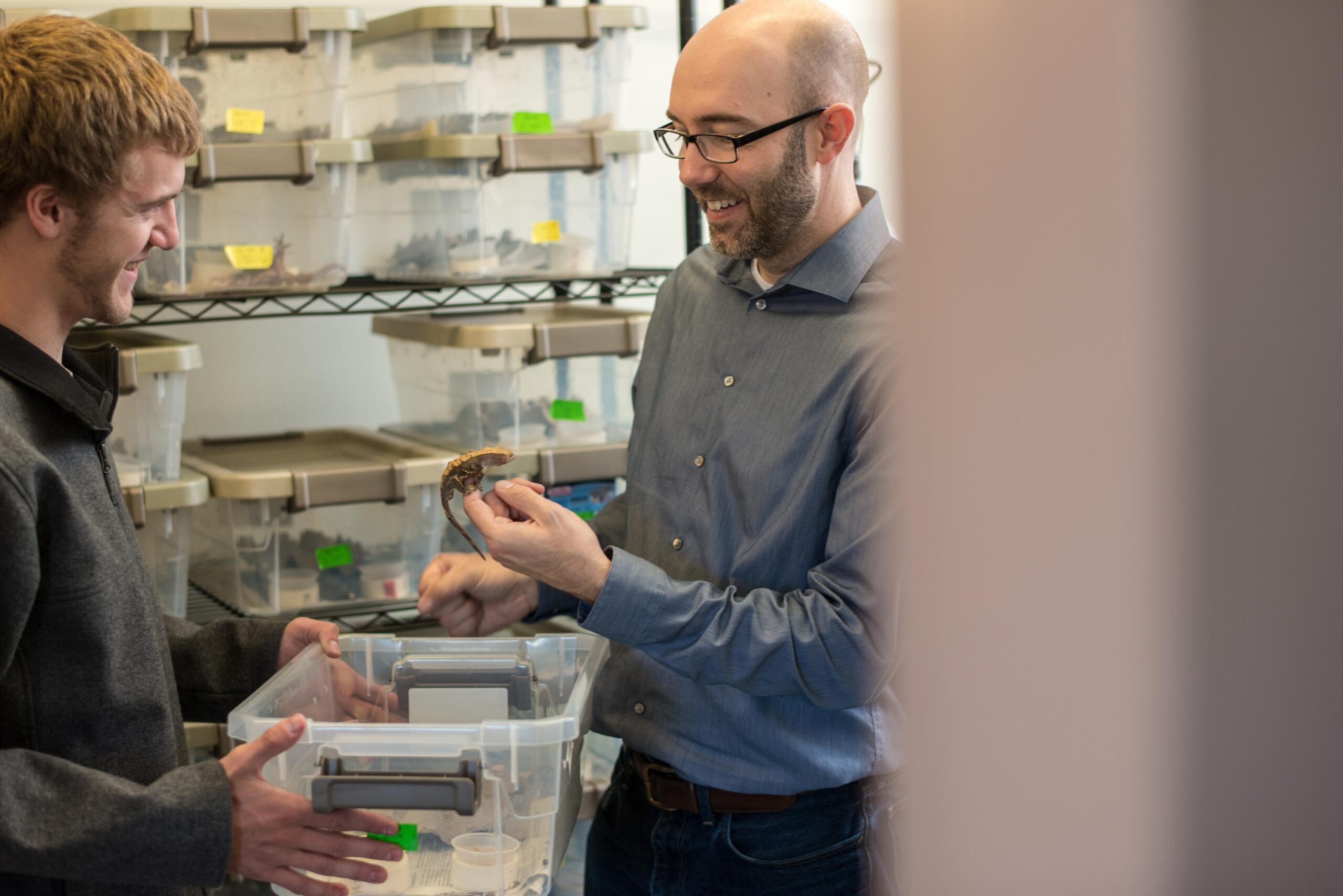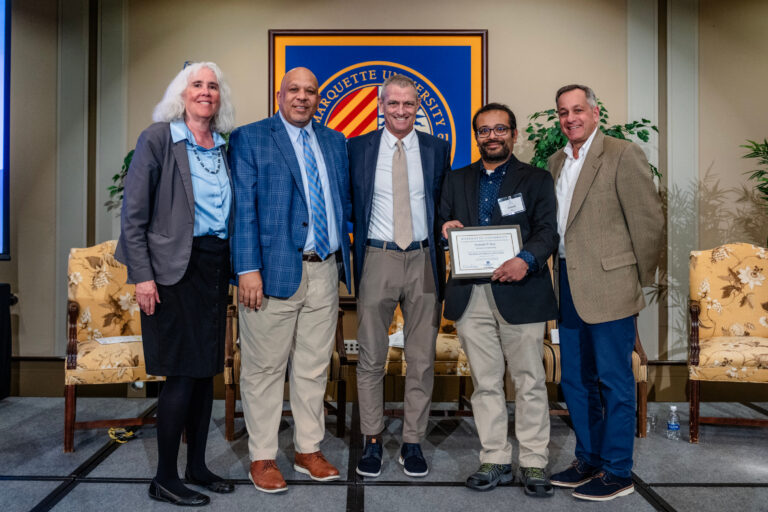A new species of African dwarf gecko has been named for Dr. Tony Gamble, associate professor of evolutionary biology in the Klingler College of Arts and Sciences, when researchers recognized five new species in an academic paper published Sept. 23, 2023, in the Zoological Journal of the Linnean Society.
Lygodactylus gamblei is one of five newly described species of gecko by researchers who completed a taxonomic revision of the Lygodactylus species from central Africa. Lygodactylus gamblei is relatively large by dwarf gecko standards and can be easily differentiated from other closely related species by its coloration and scale patterns. Dr. Gamble was not involved in the research.
“I am deeply humbled and honored by this,” Gamble said. “I hope that the description of new species, like Lygodactylus gamblei, can inspire curiosity about the natural world and the need for continued research to catalog the diversity of life on earth.”

In describing L. gamblei, the authors acknowledged Gamble for his scientific contributions:
“We name this new species after the American evolutionary biologist and herpetologist Tony Gamble of Marquette University, in recognition of his substantial contributions to the evolutionary biology of geckos. The name is a patronym formed in the genitive case.”
Research in the Gamble Lab investigates the developmental and evolutionary processes that generate biological diversity. In particular its research focuses on three complementary topics:
the evolution of sex chromosomes and sex determining mechanisms – using genomic and molecular tools; the evolution of novel morphologies related to locomotion – using genomic and developmental approaches; and the spatial and historical aspects of species diversification – using tools from phylogenetics and biogeography. Studying these processes in a single model clade (lizards and snake) presents an unparalleled opportunity to understand the complex origins of biological diversity.



